Latin American Foto Festival: Strength and resistance
- Published
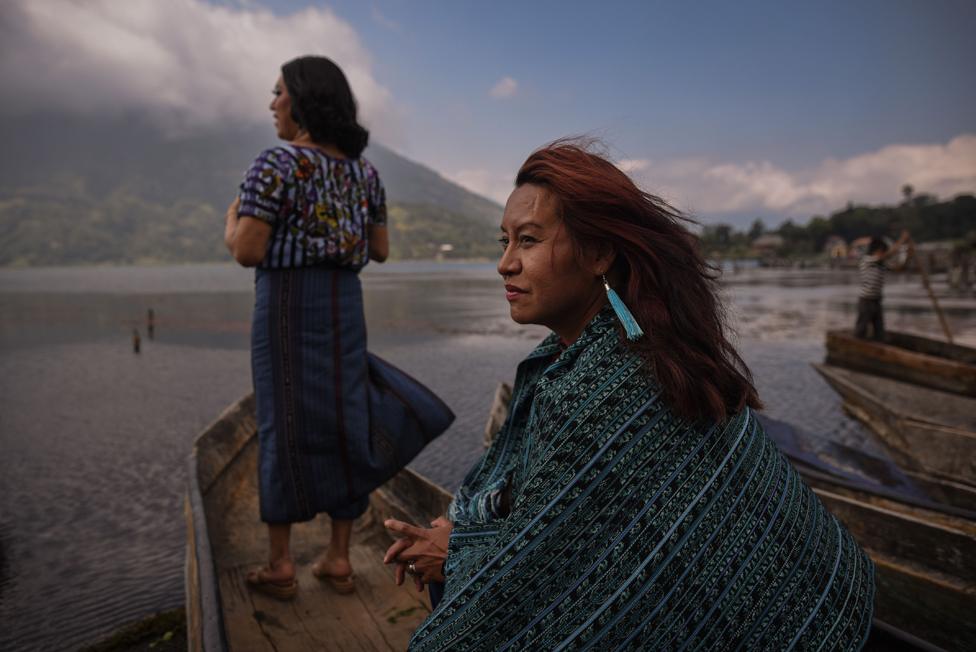
A portrait of Maria Alejandra and Kristel, Santiago Atitlán, Guatemala.
Portraits of survival and resistance go on show in New York, at The Bronx Documentary Center's fourth Annual Latin American Foto Festival.
Works by artists from Colombia, Argentina, Chile, Mexico, Venezuela, Peru and El Salvador are displayed from a variety of long-term projects focusing on social issues.
Here is a selection of some of this year's featured photographers alongside their comments on their projects.
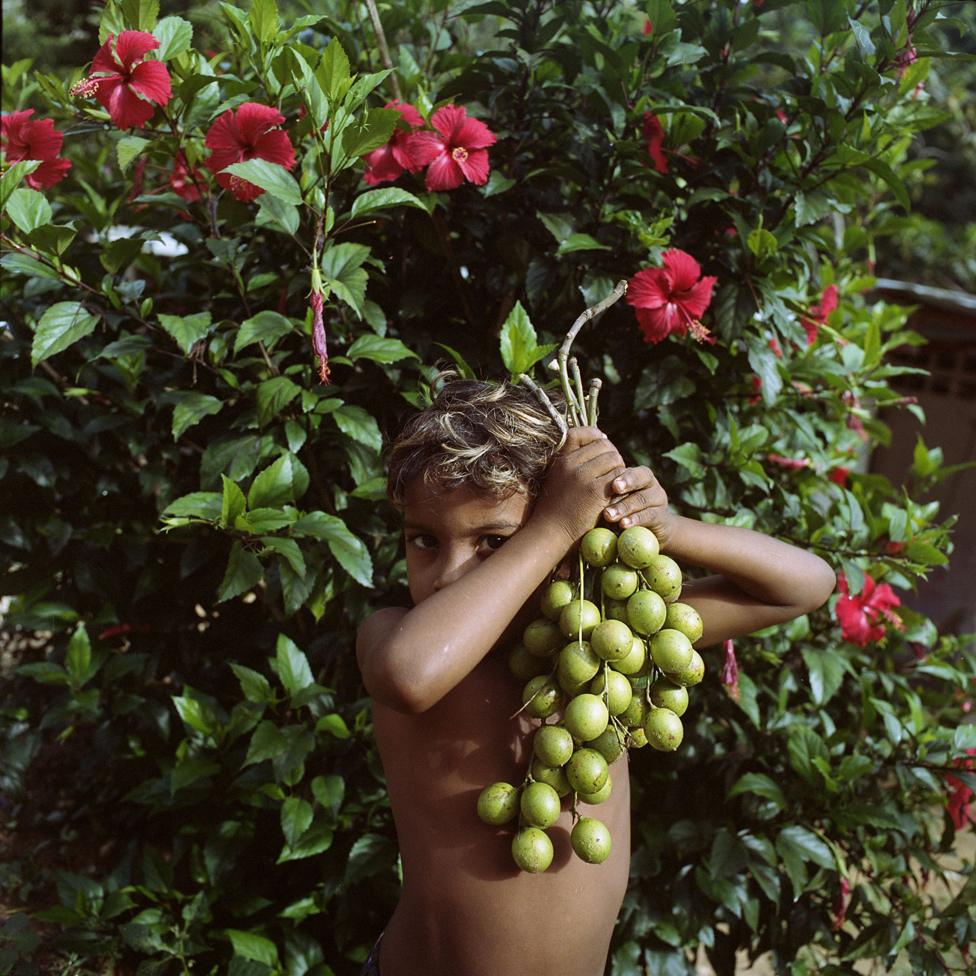
Five-year-old Alfred Flores holds a bunch of quenettes in Patanemo, Venezuela.
Andrea Hernández Briceño
"We call it mango season. It happens every year in the dry season when the fruit starts falling from the trees, abundant and generous to those who are hungry.
"In Venezuela this past year, its arrival was particularly celebrated, as the pandemic wore away access to basic necessities in a country wracked by deepening poverty and crisis.
"I made these images while walking on the streets of Caracas, the capital, and smaller towns. On my long trips I observed that most Venezuelans eat fewer than two meals a day."

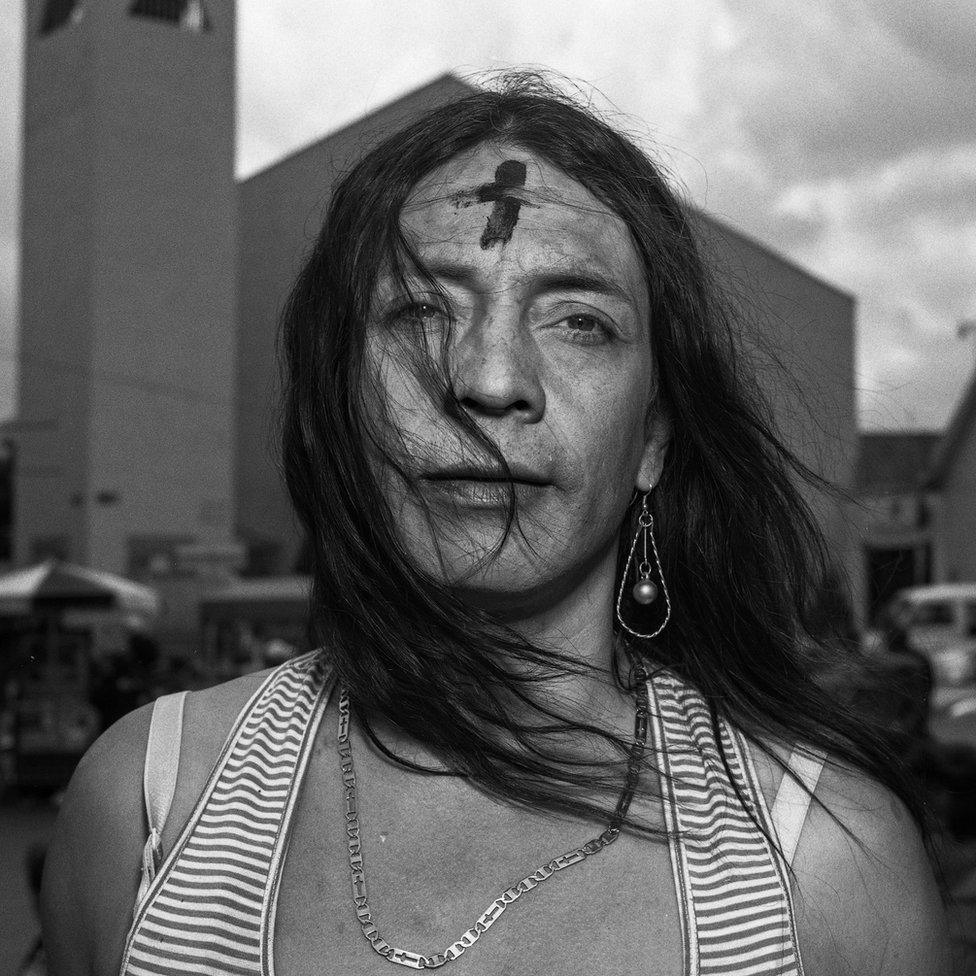
Paola during Ash Wednesday. In her youth, she was a victim of sexual violence perpetrated by paramilitaries.
Carlos Saavedra
"This photo project concentrates on a community called 'La Isla', composed of mainly displaced Afro-Colombians from the Pacific coast of the country, one of the most affected sectors due to the internal violence from guerrillas, paramilitaries and the Colombian Army.
"We worked with the community members targeted by the social cleansing campaigns - some are reformed drug addicts, some live with NGOs and some are activists who advocate against these violent 'cleansings'.

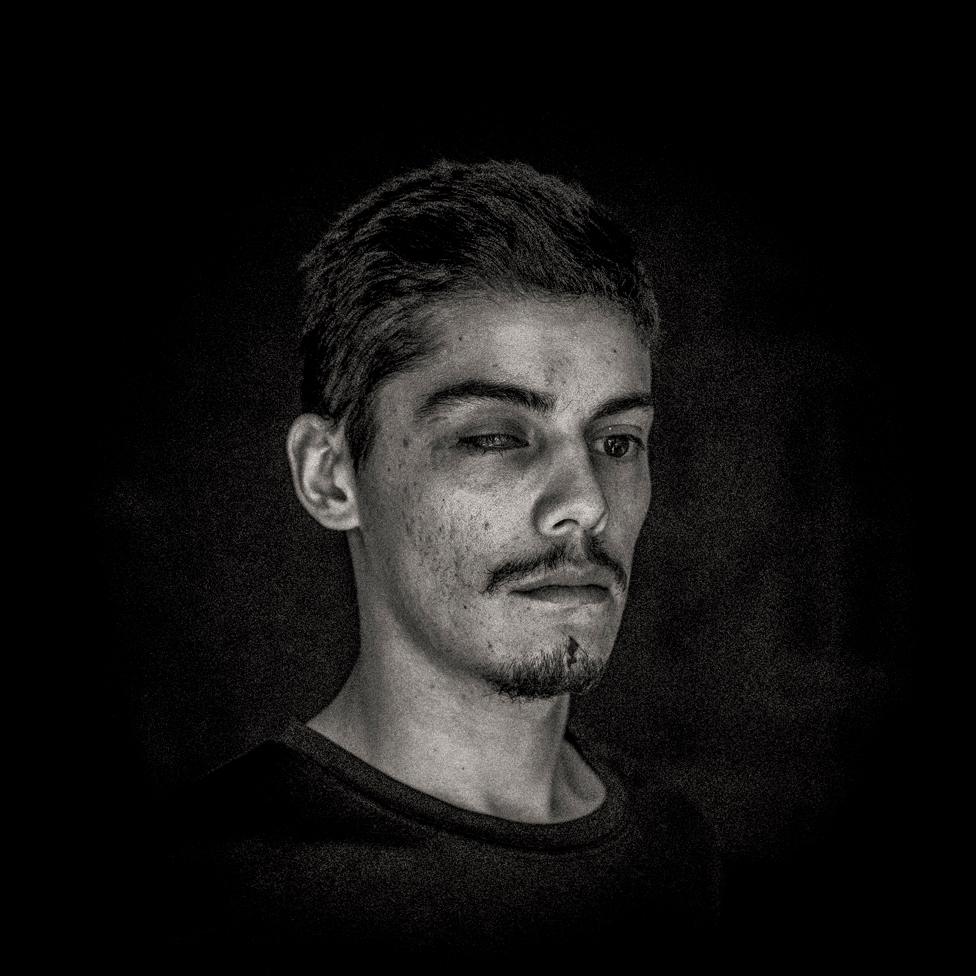
Camilo Gálvez, 24, is a sound technician who lives in Puente Alto, Santiago

Cristóbal Olivares
"Camilo received the impact of a pellet that lodged in his right eye on 15 November 2019, near the Catholic University of Santiago, Chile. His diagnosis was an ocular burst and fracture with total loss of the right eye.
"Four hundred and sixty people have had serious eye injuries, 34 of whom suffered total loss due to the indiscriminate use of pellets and tear gas bombs by the Carabineros."

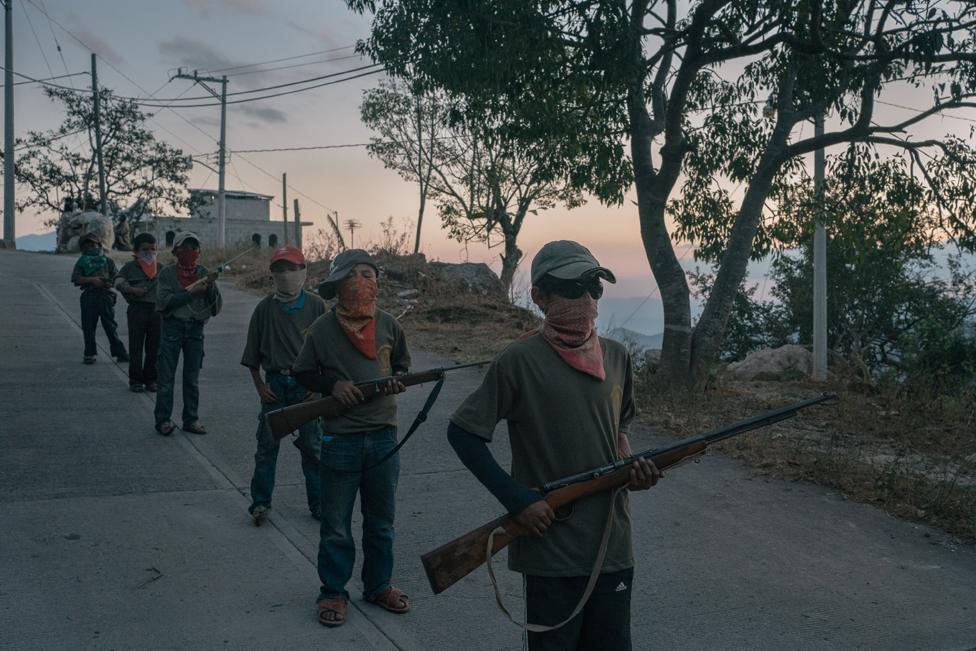
Alex, 13, right, and other children stand during a Regional Co-ordinator of Community Authorities community police force gun training presentation in Ayahualtempa, Guerrero state, Mexico.

Luis Antonio Rojas
"Documenting the way organised crime has ripped through Mexico was never something I intended to do.
"I grew up in a safe place in Mexico City, where violence never reached me directly, and I was unsure about how to cover such baffling and obscure events.
"But these realities cannot escape the daily news or documentary projects, and covering them is fundamental for many Mexican photographers.
"Alex had to stop attending high school in the town of Hueycantenango due to the presence of drug cartel Los Ardillos."

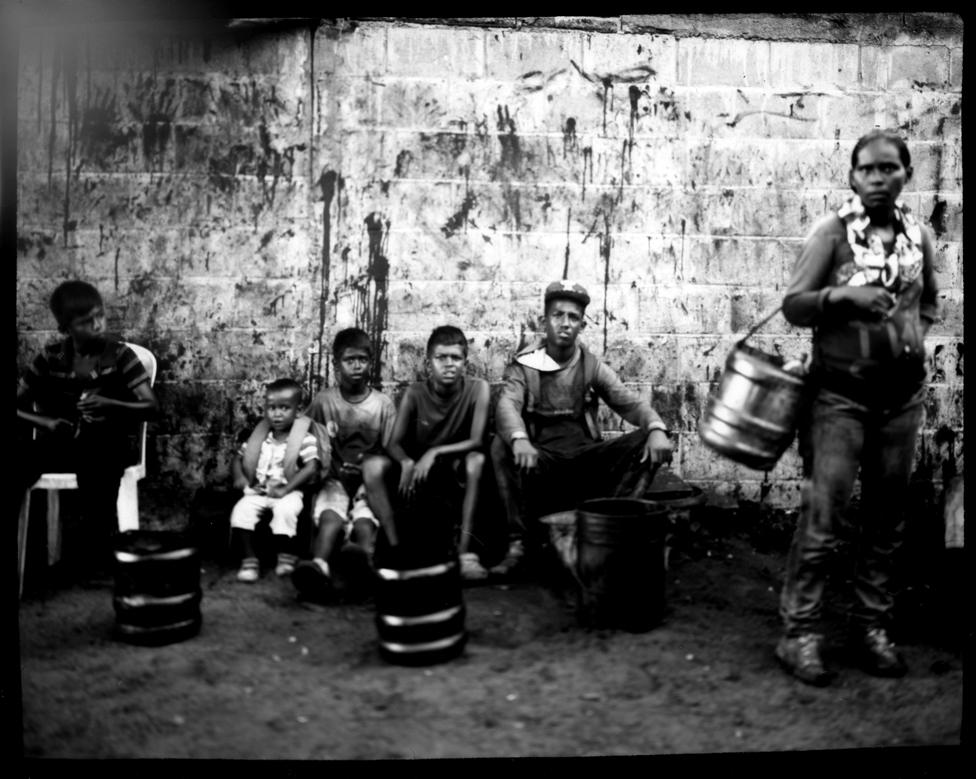
Villagers take a break from cleaning oil off freshly harvested crabs from Lake Maracaibo, in Punta Gorda, Cabimas, Venezuela.

Rodrigo Abd
"The wreckage of Venezuela's oil industry, once the richest in the world, lies all around fishermen and their families who live in villages clustered on the edge of Lake Maracaibo.
"Their struggles on a briny bay fouled by petroleum leaks and derelict oil rigs are etched on to their faces and stained into their clothes.
"Seeing these people and this place on an earlier reporting trip, I knew I had to return with my wooden box film camera to make black-and-white portraits of the fishermen and the industrial decay they call home.
"The slower pace and mood of box photography would help capture the poignancy and pain of Cabimas, where fishermen live and work among the idle, grey machinery."

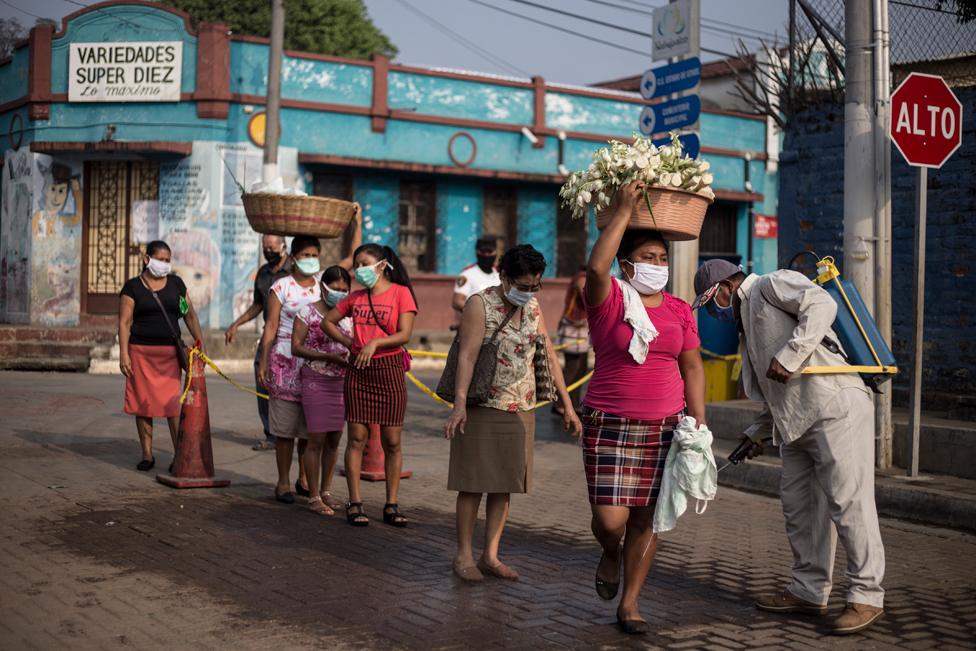
Informal vendors disinfect their bodies before entering the municipal market in Nahuizalco, Sonsonate, to sell their fruit and vegetables.

Víctor Peña
"The pandemic health crisis in El Salvador has become a political crisis.
"In the cities and in the small villages, the streets were silent and lonely during the quarantine, with the lockdown enforced by the military.
"Most of the country's economic activity was paralysed for those three months. El Salvador's economy will suffer the greatest decline in Central America."

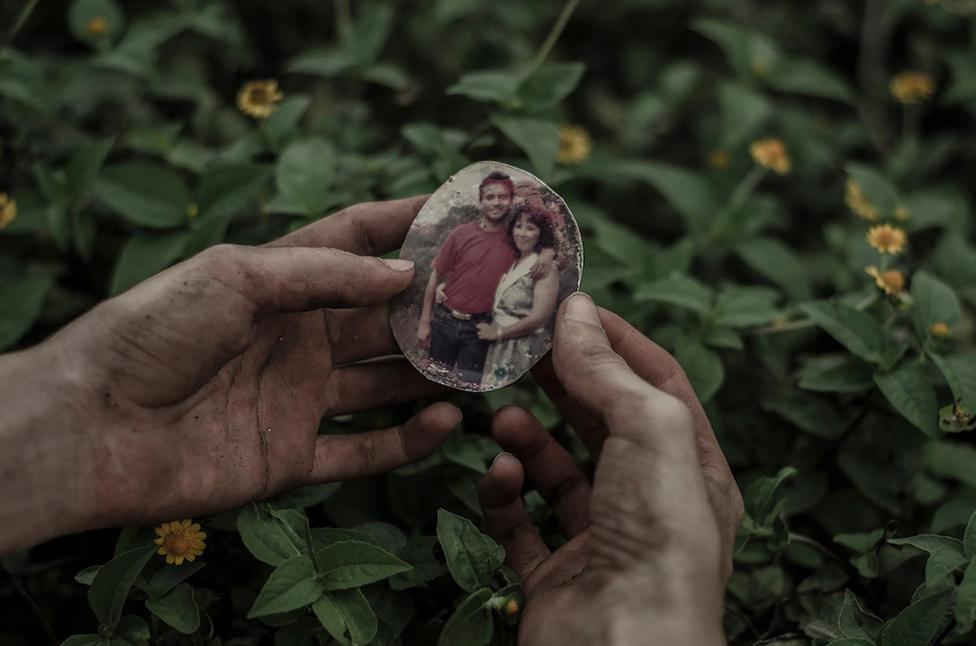
Sometimes I think that I don't want my parents to go through the pain of searching and recognising my body. Veracruz, Mexico.

Victoria Razo
"Resilience is a series of photographs taken over the years that I have lived and walked with a camera in my hand, portraying episodes from my personal life, and documenting the stories of women who have crossed my path.
"It is a series that helps me to know my own history of violence, questioning and reflecting while I relive the memory, and to fight for the construction of a more equitable society - one in which being a woman does not imply a risk to life itself.
"In this project, I have tried to make resilience visible. I photograph the pain and anger of mothers who scratch the earth to find their missing loved ones; through the women who endured domestic abuse and in the resistance of trans women who live in violence after understanding and assuming their gender identity."
The Bronx Documentary Center's fourth Annual Latin American Foto Festival, external is taking place in New York, until 1 August 2021.